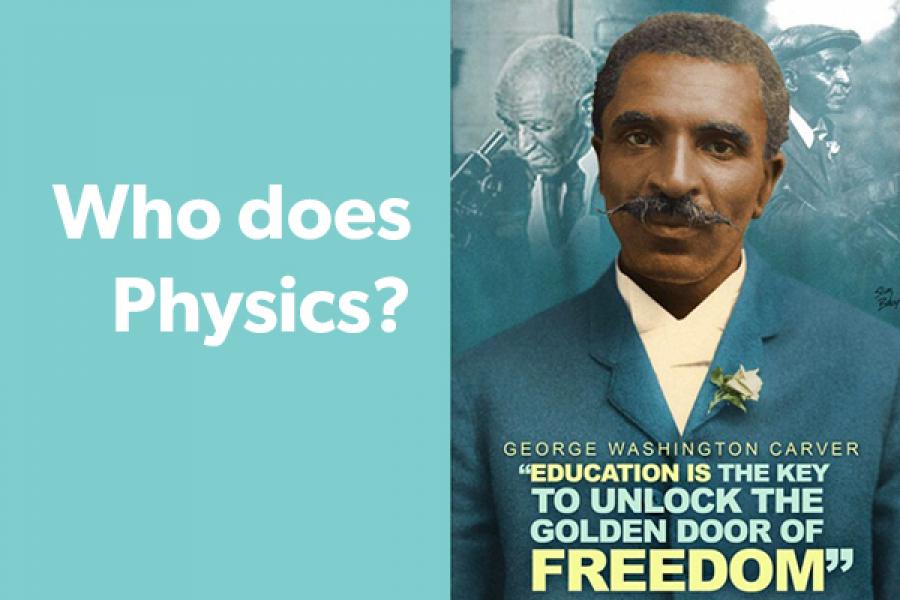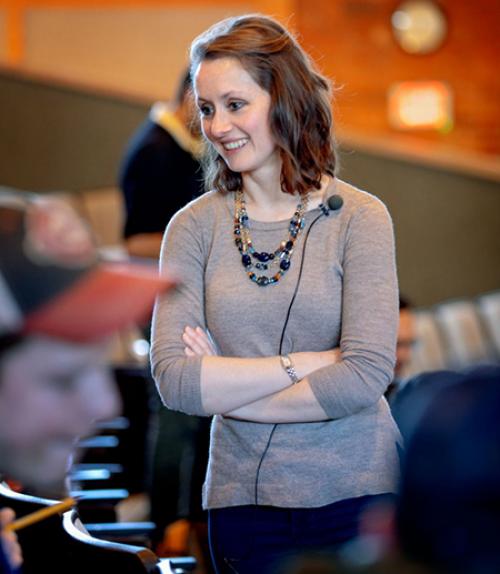All students in Natasha Holmes’ Physics of the Heavens and the Earth course have at least one thing in common: They chose to major in something other than physics.
“Some of them are fascinated by the discipline and very excited to learn more,” said Holmes, the Ann S. Bowers Assistant Professor of physics in the College of Arts and Sciences. “Some of them disliked physics in high school and are intimidated by the prospect of another physics course.”
To introduce non-majors to the field in a way that diminishes students’ apprehension and increases their enthusiasm, Holmes designed a course with an active learning approach informed by her extensive physics education research, and three key projects that tap into students’ non-science areas of study.
Holmes introduced the course in spring 2019, taught it in spring 2020, and will offer it again in spring 2021.
At the heart of the course are three projects:
- “Flat Earth”: Students learn how physicists shifted from geocentric to heliocentric models of the solar system. Then they study arguments by the Flat Earth Society and use their physics knowledge to refute the flat Earth model. “The assignment aims to get students thinking about how physics is interpreted by everyday nonphysicists using ideas from their major,” Holmes said.
- “Who Does Physics?”: To kick off the project, Holmes devotes a class to issues of representation in physics, looking at data on the fraction of physicists who are women and people of color. Then students learn about two physicists – one from before 1950 and one after – from groups historically underrepresented or minoritized in the field. They submit reports in any form: posters, podcasts, essays, plays, even music videos.
- “Fundamental Physics Debate”: The goal of this project is to get students thinking about the role of fundamental physics and why and whether it should continue to receive funding, Holmes said. The class is divided into two groups of debaters and one group of judges; in a live event, the debate teams argue for or against funding for a large-scale physics project, such as a next-generation particle collider or a space-based gravitational wave detector. “Given that so much of the physics we learn is ancient,” Holmes said, “it’s fun to get students thinking about the physics of the future and their role in that work, whether they become physicists or not.”
In addition to the core projects, Holmes implemented active learning techniques, including pre-reading quizzes, clickers, in-lecture worksheet activities, whiteboards for groups and microphones that can be tossed to students for spontaneous in-class responses.
“If we were going to do demos, we were going to do Interactive Lecture Demonstrations that had students make predictions first, confer with their neighbors, watch the demo, then explain it to their neighbors,” Holmes said. “If we were going to do tests, we were going to do two-stage tests where students do the test individually and then do it in a group.”
When the Ithaca campus closed in March because of COVID-19 and instruction went virtual, Holmes did her best to create demos involving household objects and use breakout rooms to hold group discussions.
Holmes hopes that students complete this course with a positive, informed view of physics they can take to careers in other fields.
“These students are going to be leaders in all kinds of fields,” she said. “They will all interact with physics in some way. My goal is, whatever these interactions may be, that they do not default to prior assumptions that physics is scary or not something worthy of study or support. Especially when it comes to representation.”
Fearful attitudes toward physics can be passed between adults or to children, Holmes said, but “if they’re comfortable with it or excited about the discipline, that enthusiasm will get passed on, too.”
Read the story in the Cornell Chronicle.






